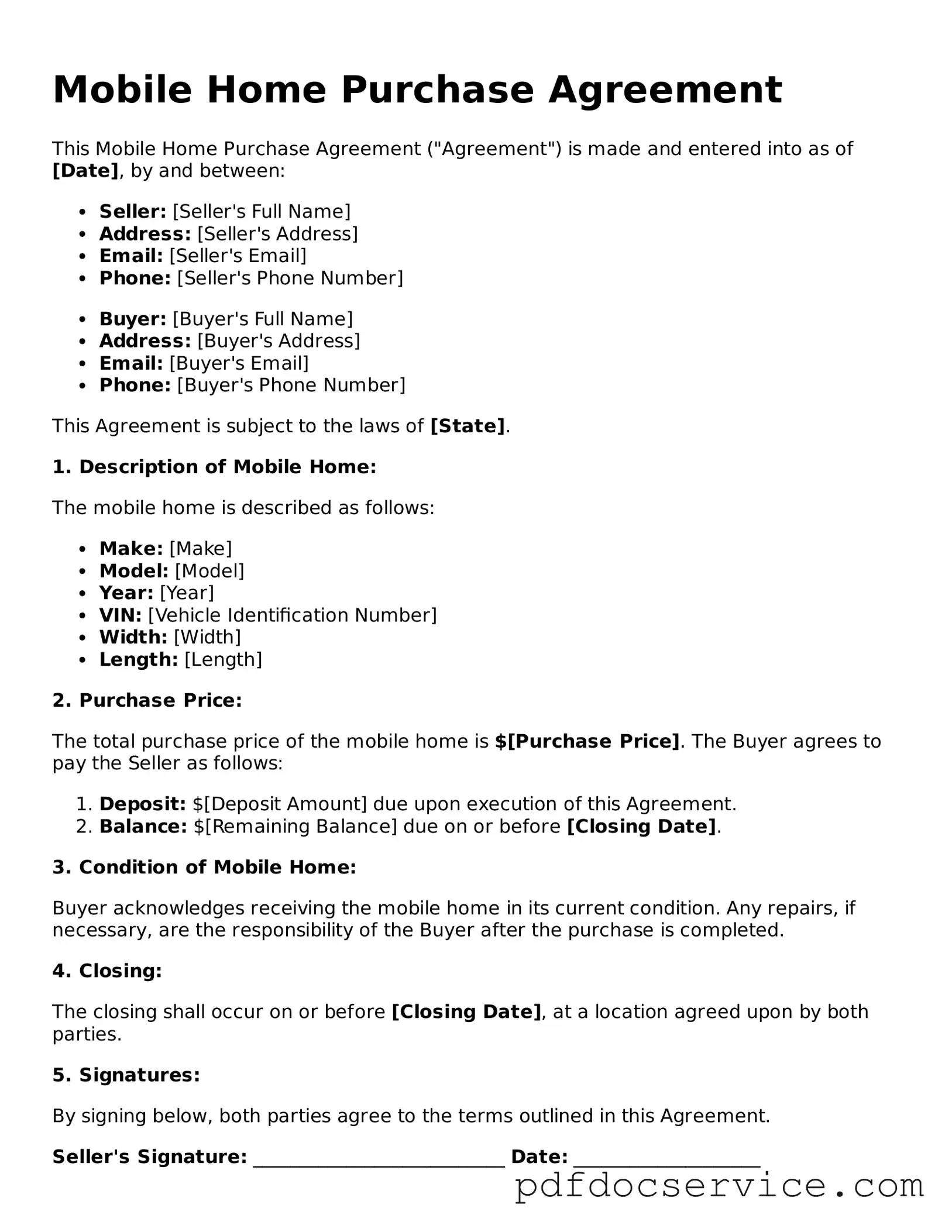Blank Mobile Home Purchase Agreement Form
The Mobile Home Purchase Agreement is a legal document that outlines the terms and conditions for buying a mobile home. This agreement serves as a binding contract between the buyer and seller, ensuring both parties understand their rights and responsibilities. Understanding this form is essential for a smooth transaction and to protect your investment.
Open Mobile Home Purchase Agreement Editor

Blank Mobile Home Purchase Agreement Form
Open Mobile Home Purchase Agreement Editor

Open Mobile Home Purchase Agreement Editor
or
Get Mobile Home Purchase Agreement PDF
Finish the form now and be done
Finish Mobile Home Purchase Agreement online using simple edit, save, and download steps.